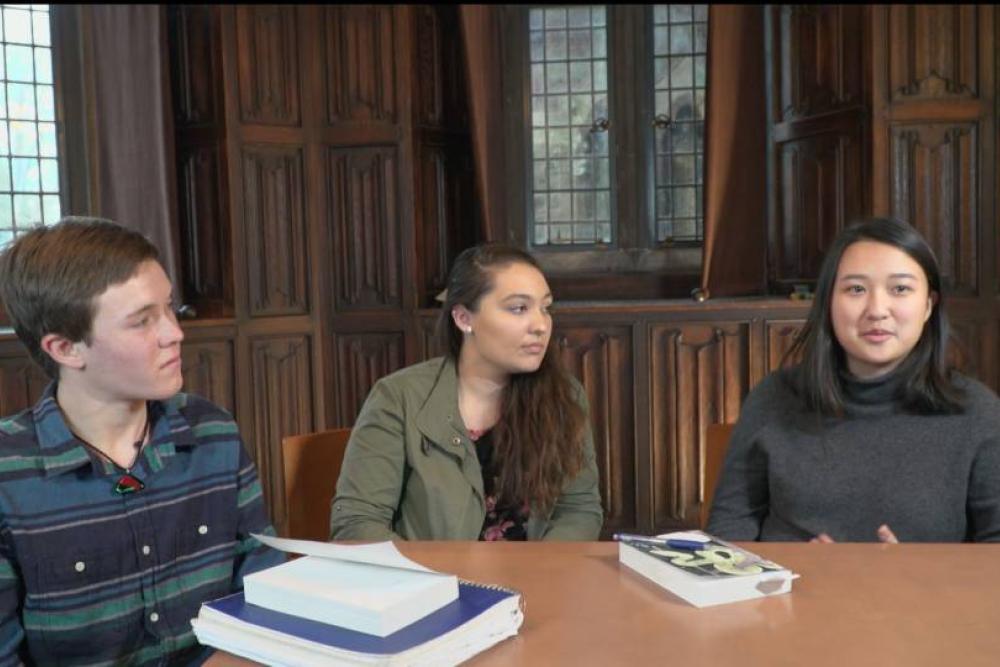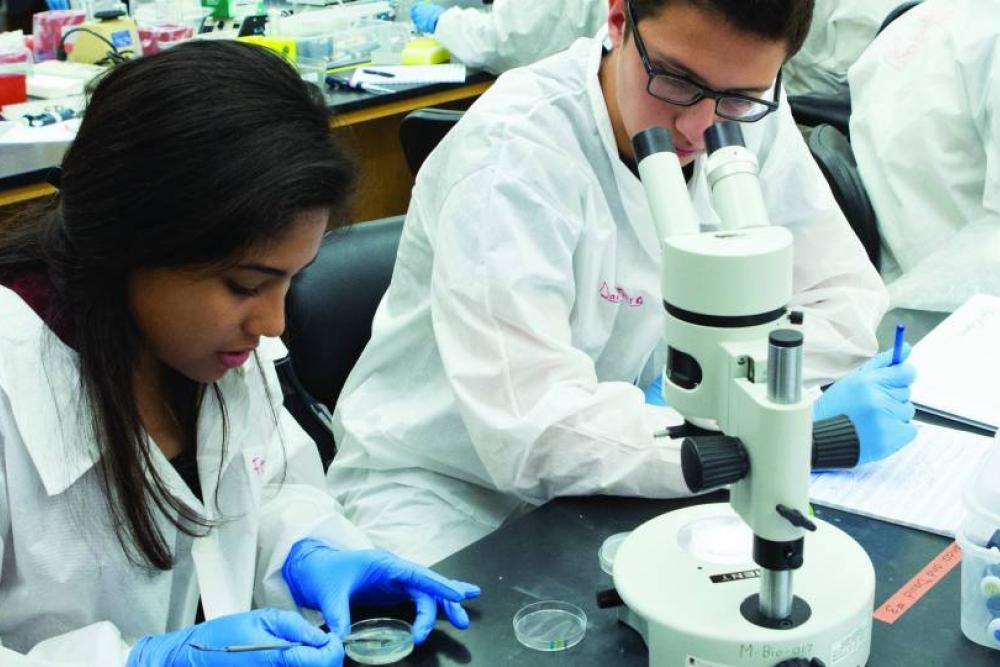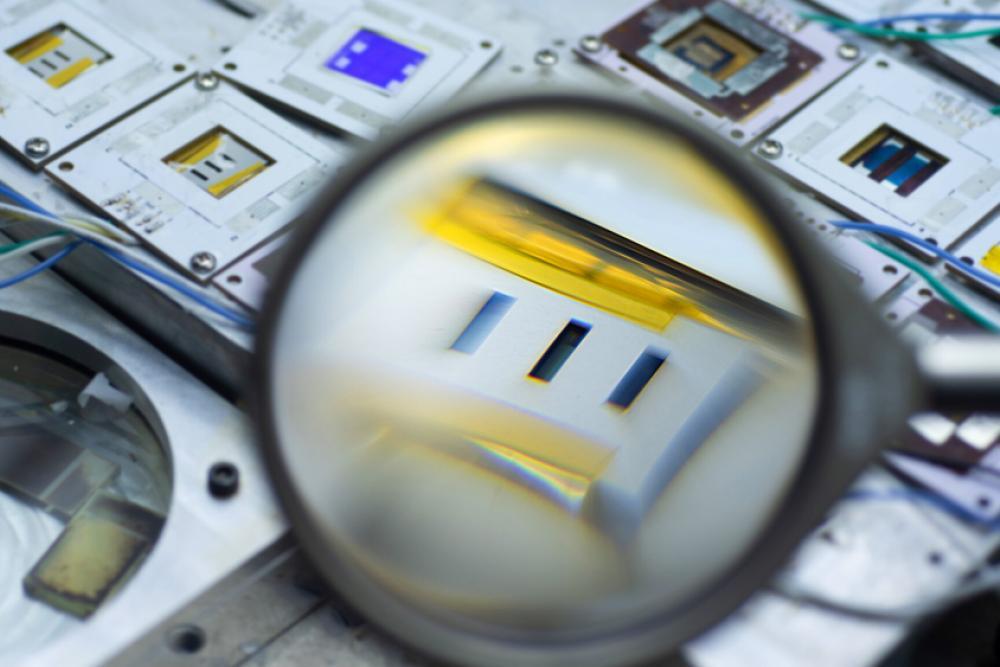A liberal arts education offers an expansive intellectual grounding in all kinds of humanistic inquiry.
By exploring issues, ideas and methods across the humanities and the arts, and the natural and social sciences, you will learn to read critically, write cogently and think broadly. These skills will elevate your conversations in the classroom and strengthen your social and cultural analysis; they will cultivate the tools necessary to allow you to navigate the world’s most complex issues.
A liberal arts education challenges you to consider not only how to solve problems but also trains you to ask which problems to solve and why, preparing you for positions of leadership and a life of service to the nation and all of humanity. We provide a liberal arts education to all of our undergraduates, including those who major in engineering.
As President Christopher Eisgruber, Class of 1983, stated in his 2013 installation address: “[A] liberal arts education is a vital foundation for both individual flourishing and the well-being of our society.”
A commitment to the liberal arts is at the core of Princeton University's mission.
This means:
-
Princeton is a major research university with a profound and distinctive commitment to undergraduate education.
-
Our curriculum encourages exploration across disciplines, while providing a central academic experience for all undergraduates.
-
You will have extraordinary opportunities at Princeton to study what you are passionate about and to discover new fields of interest.
-
Students who elect to major in the natural sciences or engineering, for example, also take classes in history, languages, philosophy, the arts and a variety of other subjects.
-
You could major in computer science and earn a certificate in theater. Or major in African American studies and earn a certificate in entrepreneurship. Many other options are possible through the range of Princeton's concentrations and interdisciplinary certificate programs.
-
You will be exposed to novel ideas inside and outside the classroom that may change your perspective and broaden your horizons.
-
We value learning and research as a source of personal discovery and fulfillment — as a pleasurable and enlightening experience in its own right. But it is also a means to an end, in preparing you to live a meaningful life in service to the common good.
-
Your Princeton education will facilitate your progress along whatever path you choose to pursue, and you will continually rely on what you learned here in your career and in your life.
-
Our graduates are prepared to address future innovations and challenges that we may not be able to even imagine today.
We hope you will take time to explore how a commitment to the liberal arts is part of what makes Princeton special. Consider our 30+ majors and 50+ minors; discover the research conducted by our distinguished faculty; engage with the range of superlative visiting scholars and artists we invite to campus each year; and imagine the quality of conversations you’ll be able to have with your professors and your peers.
Humanities Sequence
In Princeton's yearlong humanities sequence—team-taught by professors from a variety of academic disciplines—undergraduates are immerse in texts that span 2,500 years of civilization.
Program Overview Course Details Faculty FAQs
Humanities Sequence
In Princeton's yearlong humanities sequence—team-taught by professors from a variety of academic disciplines—undergraduates are immerse in texts that span 2,500 years of civilization.
Program Overview Course Details Faculty FAQsIntegrated Science Curriculum
Integrated Science is a revolutionary introductory science curriculum intended for students considering a career in science. This year-long course prepares first-year students for a major in any of the core sciences while bridging meaningfully across other disciplines.
Program Overview Course Details Student Profiles FAQs
Integrated Science Curriculum
Integrated Science is a revolutionary introductory science curriculum intended for students considering a career in science. This year-long course prepares first-year students for a major in any of the core sciences while bridging meaningfully across other disciplines.
Program Overview Course Details Student Profiles FAQsEngineering Studies
The School of Engineering and Applied Science challenges students to both solve problems and understand which problems are important by emphasizing fundamental principles of engineering with their connections to society.
Program Overview Concentrations Advising Careers
Engineering Studies
The School of Engineering and Applied Science challenges students to both solve problems and understand which problems are important by emphasizing fundamental principles of engineering with their connections to society.
Program Overview Concentrations Advising Careers- Christopher L. Eisgruber ’83, Princeton University president






